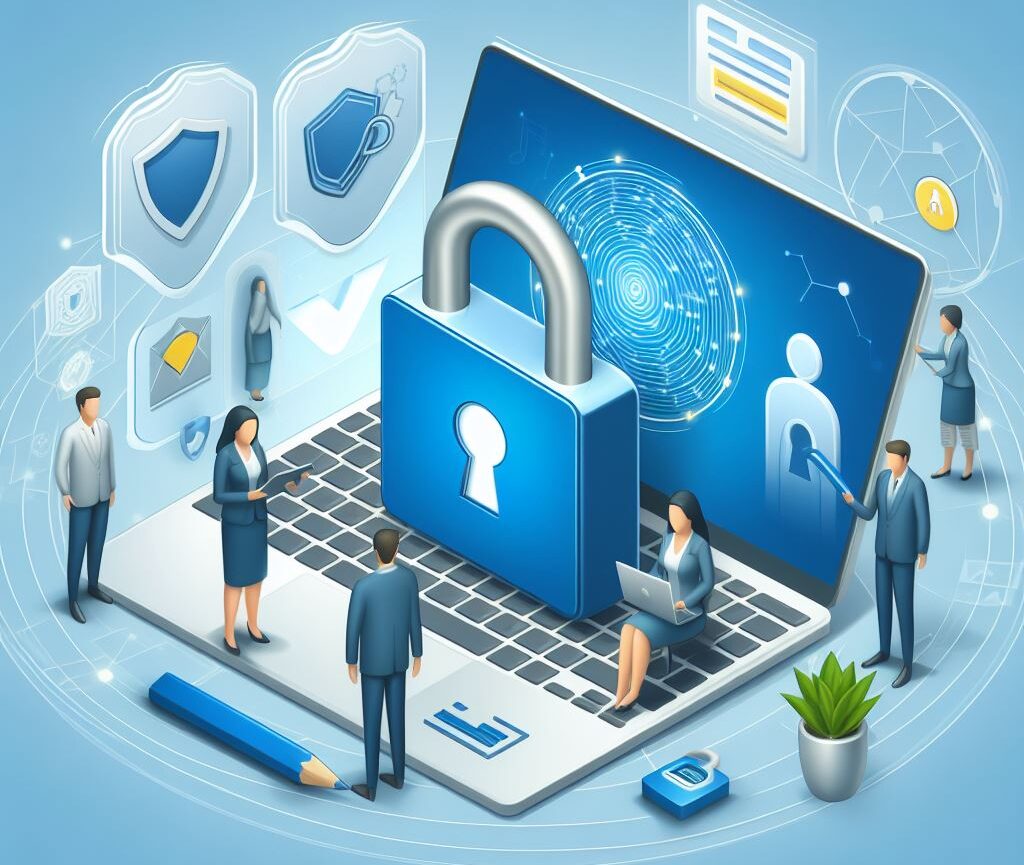Online transactions are becoming more and more popular, especially in the wake of the COVID-19 pandemic. They allow us to shop, pay bills, send money, and access various services without leaving our homes. However, they also expose us to various cyber threats, such as identity theft, fraud, phishing, malware, and hacking. These threats can compromise our personal and financial information, and cause us to lose money or face legal troubles.
Fortunately, there are some simple and effective ways to protect ourselves and our data from online security breaches. In this article, we will share some online security best practices that you can follow to stay safe and secure when making online transactions.
Online Security Best Practices
Here are some tips that you can follow to enhance your online security and avoid falling victim to cybercriminals:
- Use strong passwords and two-step authentication for your online accounts. A strong password is one that is long, complex, and unique. It should not contain any personal or common information, such as your name, birthday, or favorite color. It should also include a mix of uppercase and lowercase letters, numbers, and symbols. You can use a password manager to generate and store your passwords securely. Two-step authentication is an extra layer of security that requires you to enter a code or a verification link sent to your phone or email after entering your password. This way, even if someone steals your password, they will not be able to access your account without the second factor.
- Avoid clicking on suspicious links or attachments in emails or messages. These could be phishing attempts that try to trick you into revealing your login credentials, bank details, or other sensitive information. Phishing emails or messages may look like they come from legitimate sources, such as your bank, your online service provider, or your friend. However, they may contain spelling or grammar errors, urgent or threatening language, or requests for personal or financial information. They may also direct you to fake or malicious websites that look like the real ones. To avoid phishing, you should always check the sender’s address, the URL of the link, and the content of the message before clicking on anything. You should also never enter your information on unsecured websites or pop-ups.
- Stay informed and alert about the latest online threats and trends. By keeping yourself updated on the current cyber security landscape, you can avoid falling victim to new scams or frauds. You can follow reputable sources of information, such as FXKudi Blog, that provide useful tips and insights on online security. You can also use antivirus software and firewall to protect your devices and networks from malware and hacking attacks.
How to Choose Safe and Reliable Websites or Platforms for Online Transactions
Not all websites or platforms that offer online transactions are trustworthy and secure. Some of them may be fake or fraudulent, and may try to steal your money or data. To avoid these risks, you need to be careful and selective when choosing the websites or platforms that you use for online transactions. Here are some things to look out for:
- Check the website address and make sure it starts with “https://”. This means that the website is secure and encrypts your data. A secure website will also have a padlock icon or a green bar in the address bar. This indicates that the website has a valid security certificate and is verified by a trusted authority. You should avoid websites that start with “http://” or have a red warning sign in the address bar. These websites are not secure and may expose your data to hackers or third parties.
- Read the website’s privacy policy and terms and conditions. These documents will give you information on how the website collects, uses, and protects your personal information and your rights as a user. You should look for websites that respect your privacy and do not share your information with unauthorized parties. You should also look for websites that have clear and fair terms and conditions that do not impose unreasonable fees, charges, or penalties on you.
- Compare the website’s prices and offers with other reputable sources. This will help you avoid fake or fraudulent websites that may offer too-good-to-be-true deals or charge hidden fees. You should do some research and compare the prices and offers of different websites or platforms that provide the same or similar services. You should also check the reviews and ratings of other users to get an idea of the quality and reliability of the website or platform.
- Use a trusted payment and money transfer provider like FXKudi. FXKudi is a secure and convenient platform that allows you to send money to family and friends, pay bills, buy airtime, and access other online services. FXKudi also offers a virtual card that you can use to avoid using your bank cards for any online transactions. This way, you can protect your bank account from fraud or theft. FXKudi also has a low and transparent fee structure, and a friendly and responsive customer support team.
In conclusion, online transactions are a great way to save time and money, but they also come with some risks. By following the online security best practices and choosing safe and reliable websites or platforms for online transactions, you can enjoy the benefits of online transactions without compromising your security. Remember, your online security is your responsibility, so stay vigilant and smart when making online transactions.


Leave a Reply